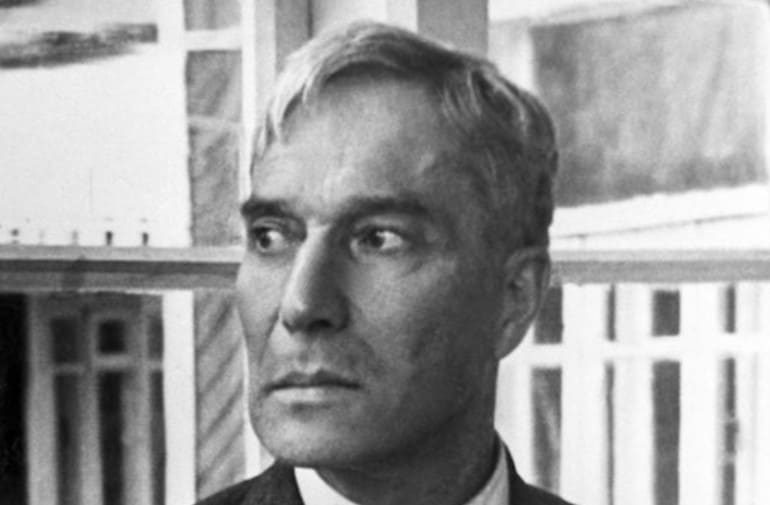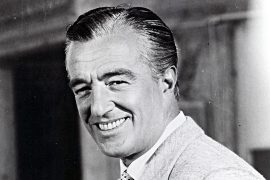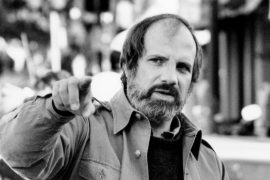He came from an artistic family and experienced classical culture as lively and fruitful. Without breaking with tradition, Boris Pasternak became one of the most important poets of the young Soviet Union. His great novel “Doctor Zhivago” led to a scandal. Pasternak was born in Moscow 125 years ago.
“A tall, gray-haired man stood in the open front door and enthusiastically waved, ‘Come in! Come in!’ He gestured with both arms and laughed at me as I walked down the snowy path through his garden. This poet Boris Pasternak, who has been living in seclusion on the outskirts of Moscow for 20 years, is not a bitter man. He is an optimist, a deeply religious person who believes in life and in the power of life, which will always be stronger than theories and dogmas.”
So the ARD correspondent Gerd Ruge in 1958 in a radio report about Boris Pasternak. When the journalist visits the poet in Moscow, he has just published his novel “Doctor Zhivago” in western countries and is now facing massive hostilities from the Soviet party press. He had to refuse the Nobel Prize for Literature under threats of being deprived of his citizenship.
Boris Pasternak was born in Moscow on February 10, 1890. The son of a well-known painter and a celebrated pianist, he grew up in an intellectual, highly cultured milieu. Guests of the house were Leo Tolstoy, Rainer Maria Rilke and the composer Alexander Scriabin, who promoted Pasternak’s musical talent and praised his first compositions.
Source of inspiration futurism
The music remained an episode, however, because the multi-talented artist went to Marburg in 1912 to study philosophy before encountering modern poetry led him to his true calling, as Susanne Frank, Professor of East Slavic Literatures at Berlin’s Humboldt University, explains :
“Futurism was actually a first, very important stage, it was very, very inspired by Mayakovsky in the 10s, and then, inspired by the Futurist poems, tried to write it himself. But it wasn’t really futuristic because it wasn’t experimental enough, not blatantly experimental.”
He finds his very own tone with the volume “My Sister, Life”. The collection was created in the summer of 1917 between the February uprising and the October revolution, but was only published in 1922 after the turmoil of the civil war. Full of bold imagery, these poems met with critical and public acclaim:
A muggy night
“It trickled, but stood still
The grasses in the storm sack,
The dust just swallowed it into pills
Iron naked in soft powder.
There was no hope of finding salvation
The village poppies was like fainting deep.
The rye burned in flames,
God swelled in rash, fevered.”
During the years of Stalinist terror, Pasternak made a living from translating foreign-language literature. Thus he strives for poetry from the Caucasus, that almost mythical region that played such an important role in classical Russian literature of the 19th century:
“He translated many German classics into Russian, English classics too, but he also translated Georgian poetry, contemporary Georgian poetry, into Russian by authors who fell victim to Stalinism shortly afterwards. And with his preoccupation with Georgia, also in his own poetry, for example in his poetry cycle “Waves”, he made a significant contribution to continuing to work on Georgia as a region of Russian literature in the tradition of Pushkin, Tolstoy and Lermontov.”
From 1947 Pasternak worked on his great revolutionary novel. “Doctor Shiwago”, in many ways an autobiographical figure, proclaims Pasternak’s religiously colored idea of life that is larger than time-bound political ideologies. Zhivago’s death is emblematic: he suffers a heart attack while attempting to breathe fresh air through the tightly closed windows of a Moscow tram. Because the novel was not published despite Khrushchev’s thaw policy, Pasternak gave it to an Italian publisher. The smear campaign that followed hit the poet, who has never openly opposed the party dictatorship, hard. Boris Pasternak died in May 1960. He was rediscovered in Russia only as society opened up in the late 1980s:
“In perestroika, of course, Pasternak was very important. His novel was published in 1988, at a time when not only Pasternak, but many other authors, such as Mandelstam, were really being discovered in the last years of the Soviet Union. And since then, of course, he has had the status of a classic, he is now an integral part of Russian literary history.”
What is Pasternak known for?
Boris Leonidovich Pasternak, (born January 29 [February 10, New Style], 1890, Moscow, Russia—died May 30, 1960, Peredelkino, near Moscow), Russian poet whose novel Doctor Zhivago helped win him the Nobel Prize for Literature in 1958 but aroused so much opposition in the Soviet Union that he declined the honour.
Why did Pasternak refused Nobel Prize?
When it was announced that Boris Pasternak had been awarded the 1958 Nobel Prize, he was forced to decline it at the behest of Soviet authorities, who had banned his novel Doctor Zhivago.
Did Boris Pasternak win the Nobel Prize?
This year’s Nobel Prize for Literature has been awarded by the Swedish Academy to the Soviet-Russian writer Boris Pasternak for his notable achievement in both contemporary poetry and the field of the great Russian narrative tradition.
Why was Dr Zhivago banned in Russia?
The novel is named after its protagonist, Yuri Zhivago, a physician and poet, and takes place between the Russian Revolution of 1905 and World War II. Owing to the author’s independent-minded stance on the October Revolution, Doctor Zhivago was refused publication in the USSR.
What does Pasternak mean in Russian?
Pasternak or Pasternack means parsnip, Pastinaca sativa, in Polish, Romanian, Russian, Ukrainian, and Yiddish.
Where does the name Pasternak come from?
Polish Ukrainian Rusyn (in Slovakia spelled mainly Pasternák) and Jewish (eastern Ashkenazic); Slovak (Pasternák): from Polish Ukrainian Rusyn and eastern Yiddish pasternak ‘parsnip’ (via Middle High German from Latin pastinaca) apparently a nickname or in the case of the Jewish surname an artificial name.





